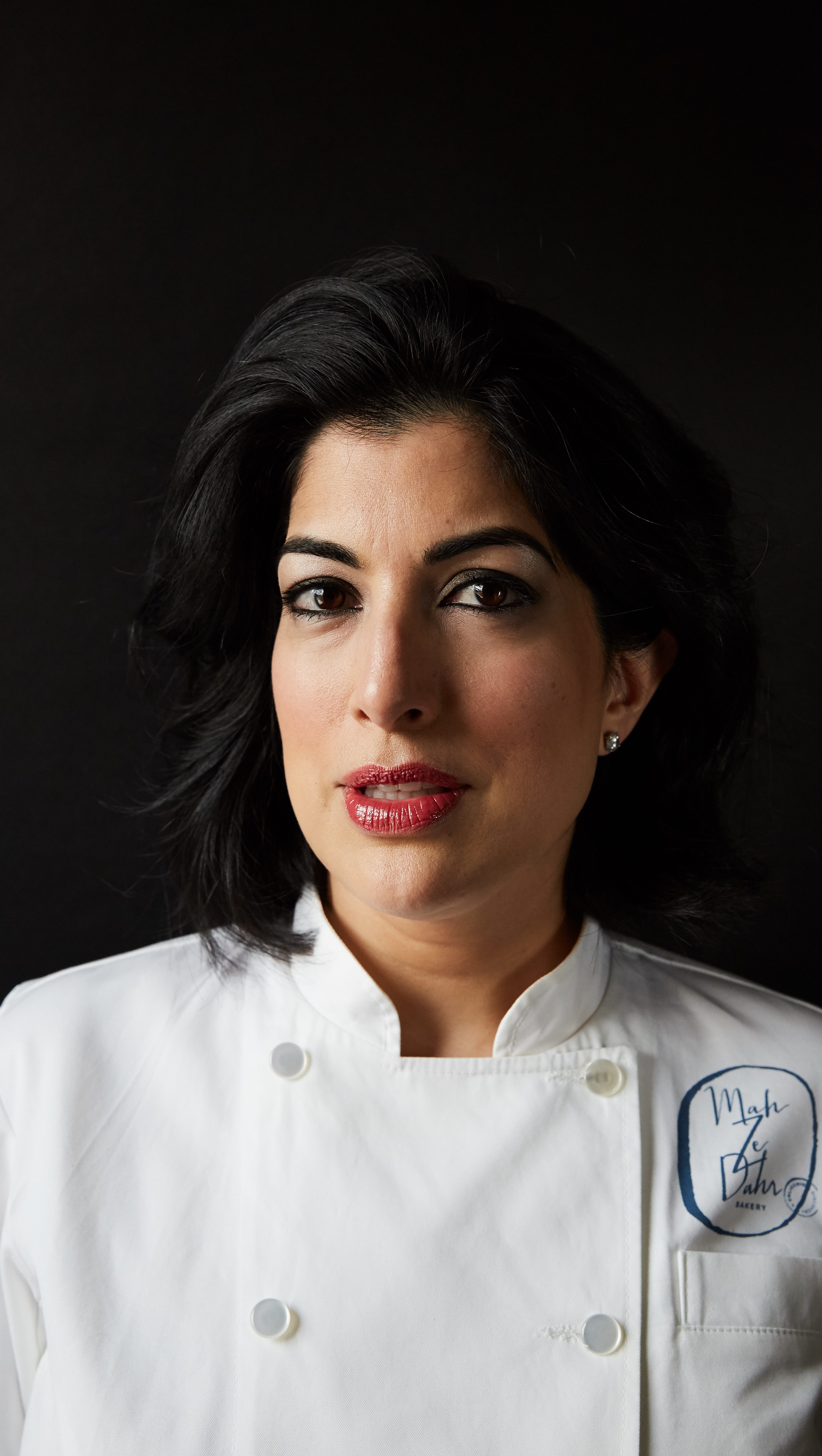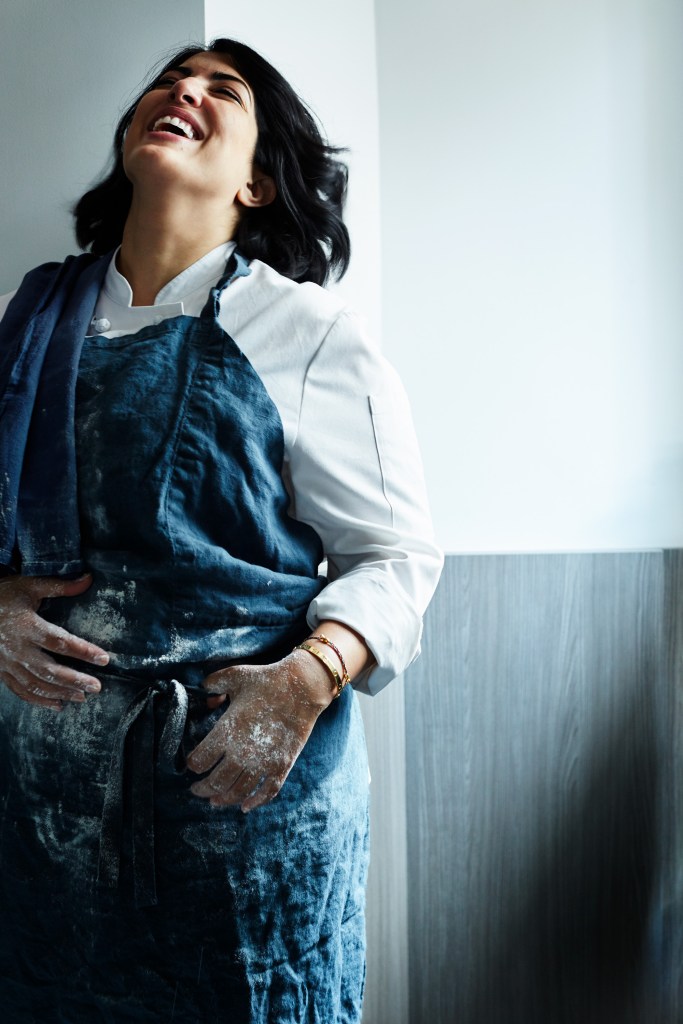
Walking into New York City’s Mah-Ze-Dahr Bakery, you won’t see any indication that the self-trained head chef and founder, Umber Ahmad ’94, was once a teenage professional violinist turned MIT biology major turned banker—or that she still does commercial voice-overs, consults on global branding in her spare time, and has had her pilot’s license since age 16. One taste of the pastries, however, and you can sense there’s something unique at work here. The brownies are reminiscent of ones you might have had as a child—moist and dense—but with an added flavor that’s hard to pinpoint. That’s the bittersweet cocoa and French butter, Ahmad says. In Urdu, the name of her bakery alludes to the magic or essence that makes something special.
The daughter of Pakistani immigrants, Ahmad grew up in Michigan with a love of food instilled by her mom and cultivated by baking lessons from her Finnish caretaker. Until about six years ago, however, that passion stayed in the background. With aspirations to become a surgeon, Ahmad chose MIT for its biology program; after graduating, she earned a master’s in public health at the University of Michigan. “I became more interested in health care in a larger global and societal format,” she explains.

But working in health care, where the organizations she worked with often hit roadblocks when they tried to access capital, turned Ahmad’s ever-curious mind toward finance. She earned her MBA from Wharton and went on to Wall Street, working in investment banking and private equity. When she progressed to running her own investment advising firm—with numerous clients in the hospitality field—her career and her baking hobby finally started to converge. The turning point was when one of her clients, celebrity chef Tom Colicchio, asked for a few samples of her baked goods after hearing a mutual friend rave about a birthday cake she’d made.
“Wanting to create a legacy of my own and build a business had been inside of me for quite a while,” says Ahmad. Upon trying her samples, Colicchio offered to support her pursuit. “The more that I helped companies to build and grow their brands and realize their vision, the more I started understanding the opportunity for me to be able to do that for myself,” she says.

Her experience advising others taught Ahmad the value of testing first, so she started the bakery online in 2013. “The challenge with food is that to build a retail storefront in New York City, it’s at least a million-dollar investment,” she says, noting the high rate of failure in the industry—according to Business Insider, 80% of NYC restaurants close within the first five years. Starting Mah-Ze-Dahr online gave her the ability to test recipes and gather data on customer responses. It built hype as well, so that when the West Village storefront opened in 2016, customers were clamoring to get their hands on a fresh brioche doughnut.
Mah-Ze-Dahr is one of New York’s successful 20%: Ahmad is now working to build out a second storefront in that city and two in Washington, DC. She says her long-term vision for the business goes beyond pastry to evoke a certain lifestyle. “Luxury is not about a watch or a vacation home,” she says. “The greatest luxury that any of us long for is time. When we sit and enjoy food with another person, that is one of the most gracious luxuries that any of us can have. That’s what I want our food to provide.”
Keep Reading
Most Popular
Large language models can do jaw-dropping things. But nobody knows exactly why.
And that's a problem. Figuring it out is one of the biggest scientific puzzles of our time and a crucial step towards controlling more powerful future models.
The problem with plug-in hybrids? Their drivers.
Plug-in hybrids are often sold as a transition to EVs, but new data from Europe shows we’re still underestimating the emissions they produce.
Google DeepMind’s new generative model makes Super Mario–like games from scratch
Genie learns how to control games by watching hours and hours of video. It could help train next-gen robots too.
How scientists traced a mysterious covid case back to six toilets
When wastewater surveillance turns into a hunt for a single infected individual, the ethics get tricky.
Stay connected
Get the latest updates from
MIT Technology Review
Discover special offers, top stories, upcoming events, and more.